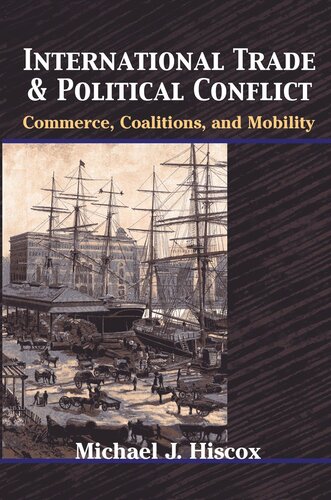

Most ebook files are in PDF format, so you can easily read them using various software such as Foxit Reader or directly on the Google Chrome browser.
Some ebook files are released by publishers in other formats such as .awz, .mobi, .epub, .fb2, etc. You may need to install specific software to read these formats on mobile/PC, such as Calibre.
Please read the tutorial at this link: https://ebookbell.com/faq
We offer FREE conversion to the popular formats you request; however, this may take some time. Therefore, right after payment, please email us, and we will try to provide the service as quickly as possible.
For some exceptional file formats or broken links (if any), please refrain from opening any disputes. Instead, email us first, and we will try to assist within a maximum of 6 hours.
EbookBell Team

4.8
54 reviewsThis book unveils a potent new approach to one of the oldest debates in political economy--that over whether class conflict or group competition is more prevalent in politics. It goes further than any study to date by outlining the conditions under which one type of political conflict is more likely than the other. Michael Hiscox focuses on a critical issue affecting support for and opposition to free trade--factor mobility, or the ability of those who own a factor of production (land, labor, or capital) to move it from one industry to another. He argues that the types of political coalitions that form in trade politics depend largely on the extent to which factors are mobile between industries. Class coalitions are more likely where factor mobility is high, Hiscox demonstrates, whereas narrow, industry-based coalitions predominate where it is low.
The book also breaks new ground by backing up the theory it advances with systematic evidence from the history of trade politics in six nations over the last two centuries, using a combination of case studies and quantitative analysis. It makes fresh conclusions about the forces shaping trade policy outcomes--conclusions that yield surprising insights into the likely evolution of the global trading system and U.S. trade policy in particular. International Trade and Political Conflict is a major contribution to the scholarly literature while being accessible to anyone interested in understanding and predicting developments in trade policy.